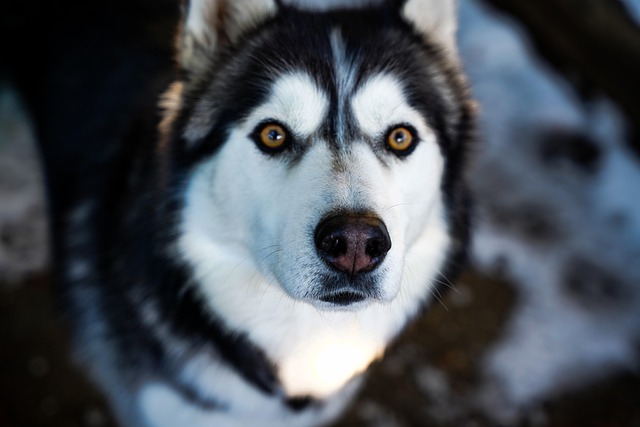
What is glaucoma in a dog?
You might notice your dog squinting more at mealtime or avoiding bright sunlight—these small changes could be early signs of a serious eye condition.
If you’re a new dog parent in the US—maybe you picked up your first pup from a shelter in Denver or a breeder in Florida—finding your dog with red, watery eyes (that’s conjunctivitis) at breakfast and loose stools by lunch can make your heart race. You’re probably asking: Is my dog’s eye problem making them have diarrhea? Let’s break this down simply, with what you need to do next and how to stay on track with local rules and pet culture.
First, the straight science: Most of the time, conjunctivitis (inflammation of the eye’s outer layer) and diarrhea don’t have a direct “cause-and-effect” link. Your dog’s eyes and gut are separate systems, after all. But they can pop up together if there’s a bigger issue. For example, infections like parvovirus (super common in unvaccinated puppies) or giardia (a tiny parasite) can irritate both the eyes and the digestive tract. Stress is another trigger—if your dog is uncomfortable from an eye infection, that anxiety might lead to loose stools (think about how your own stomach acts when you’re stressed!). Take Mike, a first-time owner in Seattle: His 8-week-old Chihuahua mix had goopy eyes and soft poop last week. He worried the eye issue was to blame, but his vet found the puppy had a mild bacterial infection and was stressed from moving to a new apartment—those two combined caused both symptoms.
So what’s your next move? Start by taking notes: What color is the eye discharge (clear? yellow? green?) and how often is your dog having diarrhea (once, or multiple times a day?). Then call your vet—most US clinics save same-day spots for sick pups. Bring a fresh poop sample (store it in a clean plastic container!) so they can check for parasites or infections. At home, keep your dog’s eyes clean with a warm, damp washcloth (no harsh soaps!) and switch their food to something gentle, like boiled chicken and white rice, if the diarrhea is mild. And never scold your dog for accidents—positive reinforcement is non-negotiable here. A small treat when they let you wipe their eyes will help them stay calm, and yelling will only add more stress (which makes diarrhea worse).

Now, let’s cover rules and community norms: Every US state requires core vaccines (like for parvovirus and distemper—both can cause eye issues and diarrhea) by law. Skipping these isn’t just bad for your dog—it could get you fined. When you take your dog out (even if they’re sick), always clean up their poop—cities from Boston to San Diego have steep fines for leaving waste on sidewalks or parks (it spreads germs to other pets and kids). If you live in an apartment, clean your dog’s space with a pet-safe disinfectant (avoid bleach!) to keep odors down for neighbors. And skip dog parks until your vet says they’re healthy—other owners will thank you for keeping contagious issues away.
Seeing your pup under the weather is hard, but staying calm, following your vet’s advice, and sticking to local rules will help them recover fast. Remember: Every new dog parent goes through this, and your patience (plus a little extra cuddles) is what your dog needs most.

You might notice your dog squinting more at mealtime or avoiding bright sunlight—these small changes could be early signs of a serious eye condition.

Let’s set the scene: It’s a sweltering Phoenix afternoon—105°F outside—and you rushed your 2-year-old Lab mix, Cooper, on a quick walk to “get it over with.”

Let’s get real: You’re in your Miami apartment, watching your 3-year-old Corgi, Loki, struggle to climb the stairs to your second-floor unit.

Many dog owners brush off occasional scratching as just “dog behavior,” but persistent itching often signals something more—like a food allergy.

You might first notice your dog scratching more than usual—chewing at their paws until the fur looks thin, or rubbing their face against the couch nonstop.

Let’s be real: You’re standing in your Chicago apartment, watching your 3-year-old Beagle, Max, huff and puff just to climb onto the couch.